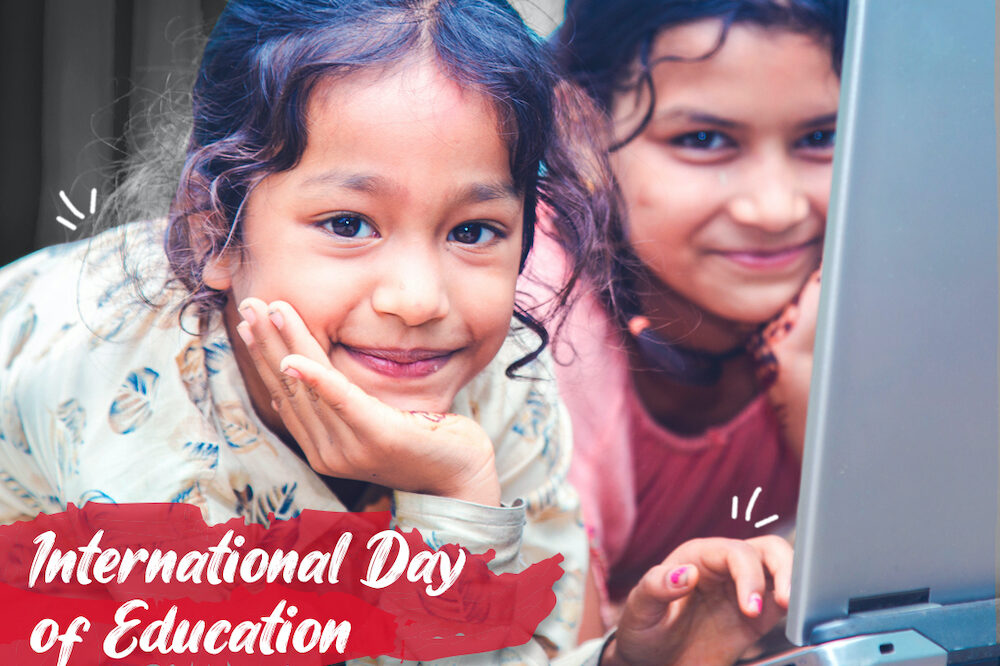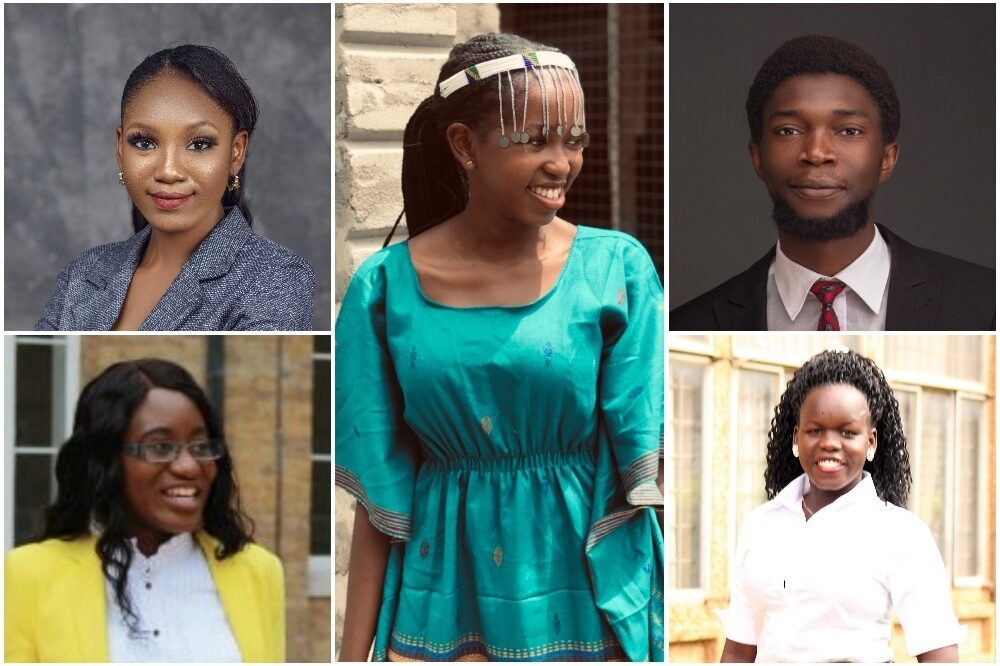International Day of Education: our Global Youth Ambassadors on their hopes for 2022

To mark the annual United Nations-led celebration, some of our youth activists from around the world outline what they think the priorities should be this year.
Jump to
- How do you want to see the global conversation around education change this year?
- What should be prioritised this year by governments and global stakeholders to transform education?
- How do you hope world leaders will act differently this year to change course and transform education?
- Why do you think this year is so important for education and what do you hope we can do differently?
As the world strives to recover from the effects of the pandemic, the international community also needs to do much more to end the global education crisis.
This year’s International Day of Education theme is Changing Course, Transforming Education and highlights the need for a new way forward. We asked some of our Global Youth Ambassadors – a network of hundreds of young campaigners in 90 countries – what they hope 2022 will bring.
How do you want to see the global conversation around education change this year?
Marian Adejokun (United Kingdom): Education is a crucial aspect when it comes to children’s learning and development. However, many young children are unable to access educational resources due to their increasing exposure to poverty, violence, and exploitation.
I want to see the global conversation shift to explore new tactics and strategies, including changing how young children access various services and resources to increase their opportunities and capacity to learn in their environment.
Hardness Range (Tanzania): The global conversations should address the crucial need for innovative educational initiatives. This means using the possible transformational ways that young people can address and solve the academic challenges facing their home communities and investing in youth-led ideas.
I want to see governments prioritise supporting students and teachers by partnering with education innovations and uplifting skills development.
Motunrayo Fatoke (Nigeria): The Covid-19 pandemic has disrupted education systems worldwide, which has led to mass closures of schools, early childhood education services, universities, and colleges.
Before the pandemic, there had been an already existing learning gap between children from middle-income homes and low-income homes in Nigeria. Education was already dealing with issues such as poor funding, limited teaching aids, poor learning environment, unqualified teachers and lack of digital tools.

Global Youth Ambassadors (clockwise, from top left) Motunrayo Fatoke, Hardness Range, Chinedu Isagbah, Ajwok Mary Valentino and Marian Adejokun
What should be prioritised this year by governments and global stakeholders to transform education?
Ajwok Mary Valentino (South Sudan): Digital investment in education should be given a priority by governments. It has proven to be a valuable tool throughout the pandemic – but there are still many who don’t have access and haven’t been able to continue their learning.
Funding education needs to remain a priority, as the effect of Covid-19 continues to impact children’s learning progress. For example, in Uganda schools have only just reopened, ending the world’s longest lockdown. Much support is needed for public schools.
Chinedu Isagbah (Nigeria): Year in, year out global leaders gather around the world to discuss the education crisis and how we can end it. We need more empathic and passionate leaders to drive and champion a transformative approach to education.
I want to see real progress and hope that world leaders will prioritise making education inclusive for children and young people with disabilities.
Motunrayo Fatoke: As the pandemic strains national economies and budgets, the need to protect national and local education budgets, ensuring that education remains a priority for national governments, has never been more urgent.
Data shows that for the past 10 years the Nigerian education budget allocation has continuously been below UNESCO’s recommended 15% of the budget in developing countries.
How do you hope world leaders will act differently this year to change course and transform education?
Ajwok Mary Valentino: This year, I want to see leaders acting on their promises. Building coalitions with development partners and young people at the grassroots level, empowering them and involving them as partners in solving the world’s most pressing issues.
Making the right investments in education is key in order to reach the young people who need it the most.
Motunrayo Fatoke: Decades of slow but steady progress in educating more children around the world abruptly ended in 2020. This is the time we need our leaders to increase their investment in education, as it is the best strategy to recover better post-pandemic and to meet up with global trends in education.
We need more computers in the ICT rooms, we need well-equipped laboratories, functional libraries, conducive restrooms, great school infrastructure and more.
Why do you think this year is so important for education and what do you hope we can do differently?
Marian Adejokun: This year it is important for effective inclusive practice to take place. More investment should go into improving children’s learning environment, resources and their mental health and wellbeing.
As many governments move into Covid-recovery policies they need to remember that leadership involves having a mature understanding of children, families and communities. I hope to see mental health and wellbeing taking priority in the educational environment.
Hardness Range: In 2022, the world is still adjusting to the new normal. I hope different stakeholders will consider upholding transformational partnerships among initiatives with governments and non-profits. I want to see sustainable ways to assist educational institutions with less or no funding.
Chinedu Isagbah: As economies and nations rebound, 2022 has become a defining year to revisit education policies and enhance the quality of education globally – especially by making it more inclusive and progressive.